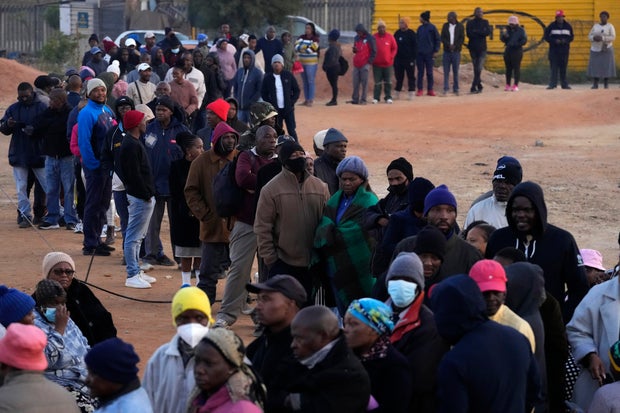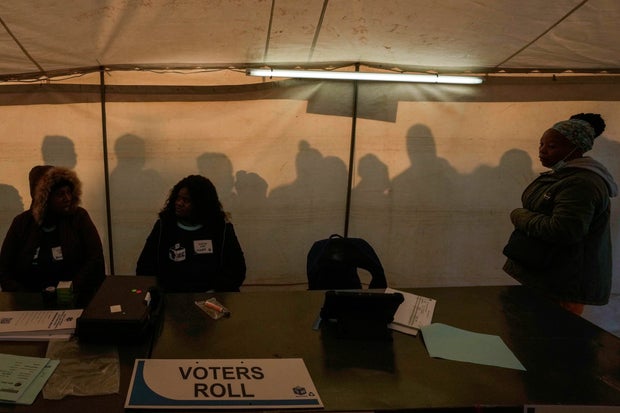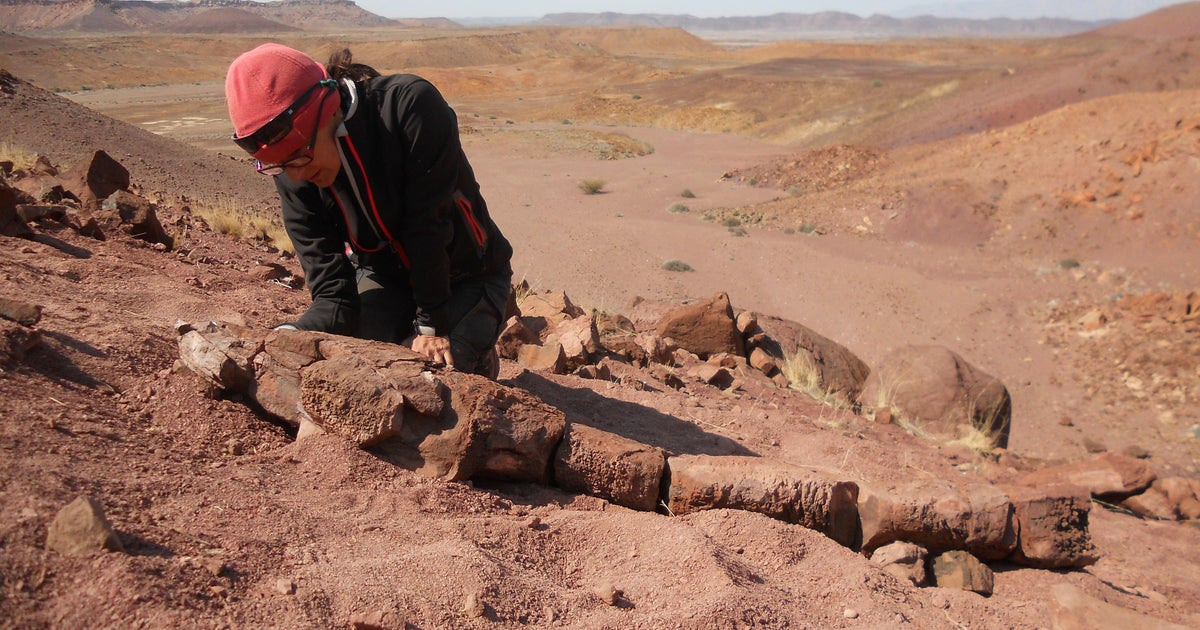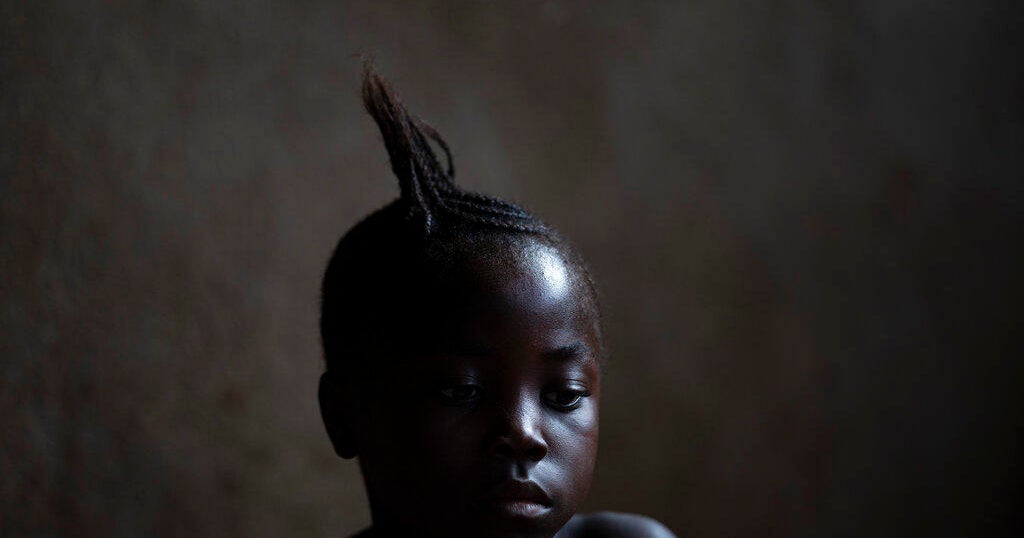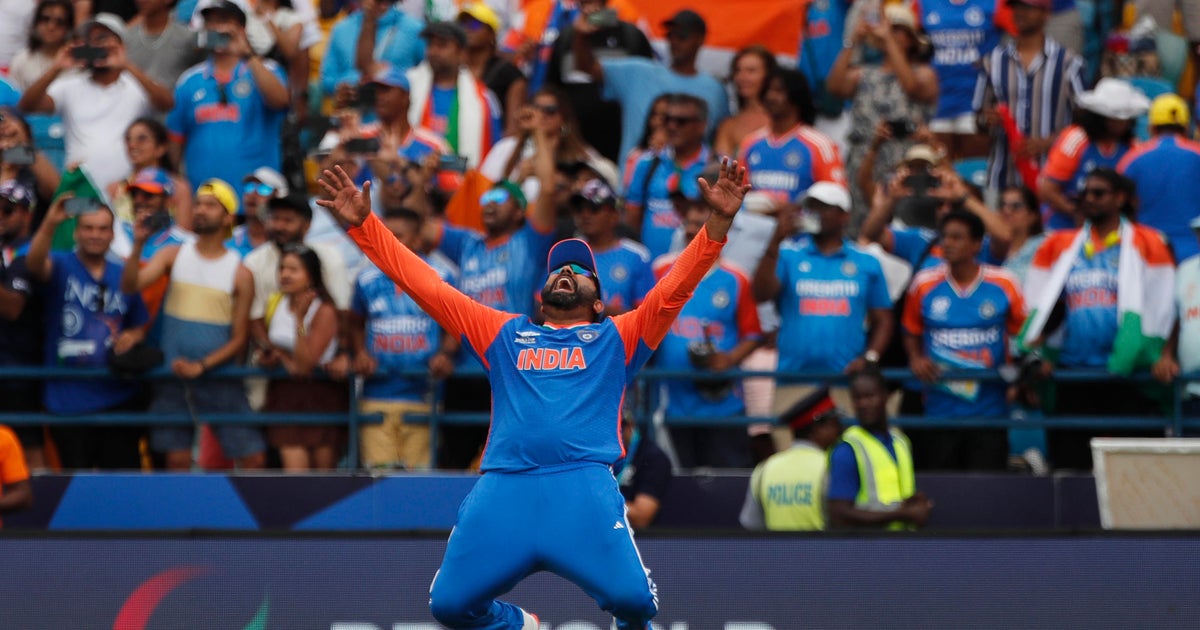CBS News
South Africa’s ANC ruling party that freed country from apartheid loses its 30-year majority
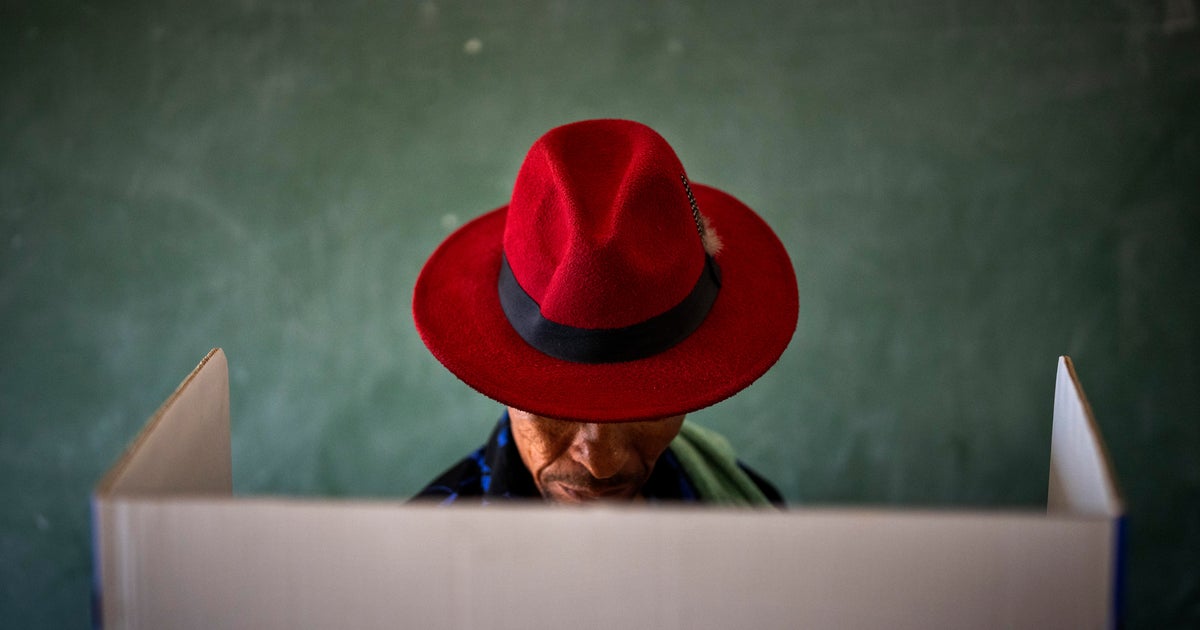
The African National Congress party lost its parliamentary majority in a historic election result Saturday that puts South Africa on a new political path for the first time since the end of the apartheid system of white minority rule 30 years ago.
With nearly 99% of votes counted, the once-dominant ANC had received just over 40% in the election on Wednesday, well short of the majority it had held since the famed all-race vote of 1994 that ended apartheid and brought it to power under Nelson Mandela. The final results are still to be formally declared by the independent electoral commission that ran the election.
While opposition parties hailed it as a momentous breakthrough for a country struggling with deep poverty and inequality, the ANC remained the biggest party by some way but will now need to look for a coalition partner or partners to remain in the government and reelect President Cyril Ramaphosa for a second and final term. Parliament elects the South African president after national elections.
Emilio Morenatti / AP
The result ended the ANC’s dominance three-decade dominance of South Africa’s young democracy, but the way forward promises to be complicated for Africa’s most advanced economy, and there’s no coalition on the table yet.
The main opposition party, the Democratic Alliance, was on around 21% . The new MK Party of former President Jacob Zuma, who has turned against the ANC he once led, came third with just over 14% of the vote in the first election it has contested.
Which parties the ANC might approach to co-govern with is the urgent focus now, given Parliament needs to sit and elect a president within 14 days of the final election results being officially declared. A flurry of negotiations were set to take place and they will likely be complicated.
The MK Party said one of their conditions for any agreement was that Ramaphosa is removed as ANC leader and president.
“We are willing to negotiate with the ANC, but not the ANC of Cyril Ramaphosa,” MK Party spokesperson Nhlamulo Ndlela said.
Themba Hadebe / AP
More than 50 parties contested the national election, but given how far off a majority the ANC appears to be, it is likely that it will have to approach one of the three main opposition parties.
MK and the far-left Economic Freedom Fighters have called for parts of the economy to be nationalized. The centrist Democratic Alliance is viewed as a business-friendly party and analysts say an ANC-DA coalition would be more welcomed by foreign investors.
Despite the uncertainty, South African opposition parties were hailing the new political picture as a much-needed change for the country of 62 million, which is Africa’s most developed but also one of the most unequal in the world.
South Africa has widespread poverty and extremely high levels of unemployment and the ANC has struggled to raise the standard of living for millions. The official unemployment rate is 32%, one of the highest in the world, and the poverty disproportionately affects Black people, who make up 80% of the population and have been the core of the ANC’s support for years.
Themba Hadebe / AP
The ANC has also been blamed — and apparently punished by voters — for a failure in basic government services that impacts millions and leaves many without water, electricity or proper housing.
“We have said for the last 30 years that the way to rescue South Africa is to break the ANC’s majority and we have done that,” Democratic Alliance leader John Steenhuisen said.
Nearly 28 million South Africans were registered to vote and turnout is expected to be around 60%, according to figures from the independent electoral commission that runs the election.
CBS News
As sunscreen misinformation spreads online, dermatologists face real-life impact of online trends

With the holiday weekend in full swing, the anti-sunscreen movement’s recent spike is worrying dermatologists.
“It was not like this before,” Dr. Jeanine Downie, a board-certified dermatologist with her own practice in New Jersey told CBS News Confirmed. “I see easily six patients per week that are anti-sunscreen, where it used to be maybe one every other week or one a month. And now it’s just gotten crazy.”
Downie says in the last two weeks she’s diagnosed three squamous cell and two malignant melanomas, both of which can turn cancerous if not caught early. “And that’s me, just one little dermatologist,” she said.
This movement picked up steam in June, with creators on TikTok telling followers in no uncertain terms “stop wearing sunscreen.” At first, the posts received tens of thousands of views and likes. Dermatologists on the platform then began sharing their own reactions, with those videos gaining even more views. And more recently, influencer Nara Smith went viral sharing an at-home sunscreen recipe to her 8 million followers that dermatologists say does little to protect wearers from sun damage.
Dr. Shereene Idriss, a New York dermatologist who has amassed more than a million followers on her social media channels, is trying to leverage that influence to educate users about sunscreen and sun protection.
“It’s becoming more and more difficult, I think, as a consumer, to try to weed through the noise,” Idriss told CBS News Confirmed.
This misinformation reflects the surprising reality of how some young Americans view sun safety. A study by the Orlando Health Cancer Institute in March found that 1 in 7 adults under the age of 35 say daily sunscreen use is more harmful than direct sun exposure. “I tell my patients, if you want your face to look like a leather bag later, then that’s up to you,” Downie said. About 6.1 million adults are treated each year for basal cell and squamous cell carcinomas according to the CDC. Skin cancer is the most common type of cancer in the country.
“They only want the natural things,” said Downie. “But I tell them all the time, sitting in traffic here in the tri-state area, the level of pollutants in the air on a daily, weekly and monthly basis is significantly more toxic than any chemical they’re going to rub into their skin with sunblock.”
While there’s no evidence that sunscreens are unsafe, the FDA is currently investigating potential concerns. It’s called for more data on 12 ingredients often found in U.S. sunscreen. After conducting its own study into how certain ingredients are absorbed into the bloodstream, the FDA has called for more research into potential health effects on the body.
However, beachgoers on the Jersey Shore this week told CBS News that sun safety is top of mind this summer. CBS News Confirmed looked at Google Search trends and saw terms like “sunscreen” and “what does skin cancer look like” are at an all-time high since tracking began in 2004.
“You know what gets them to start wearing sunblock?” said Downie. “Young kids and young adults, Gen Z, Gen X, they hate pores. And once they hear that they’re going to have big pores that look like potholes, they put that sunblock on.”
The dermatologists CBS Newsspoke with say there is no such thing as a healthy tan. To best protect yourself this summer, they say to use sunscreen and reapply often; wear UPF clothing or UV visors; and avoid being outside during peak UV index between 10 a.m. and 2 p.m.
CBS News
7/5: CBS Evening News – CBS News

Watch CBS News
Be the first to know
Get browser notifications for breaking news, live events, and exclusive reporting.
CBS News
Moderate Masoud Pezeshkian wins Iran’s presidential runoff election
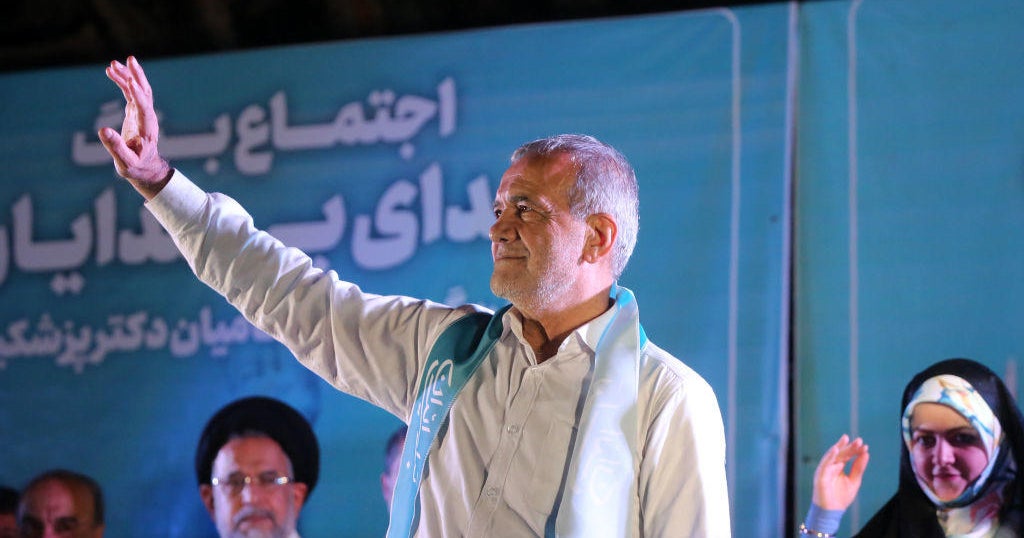
Reformist candidate Masoud Pezeshkian won Iran’s runoff presidential election Saturday, besting hard-liner Saeed Jalili by promising to reach out to the West and ease enforcement on the country’s mandatory headscarf law after years of sanctions and protests squeezing the Islamic Republic.
Pezeshkian promised no radical changes to Iran’s Shiite theocracy in his campaign and long has held Supreme Leader Ayatollah Ali Khamenei as the final arbiter of all matters of state in the country. But even Pezeshkian’s modest aims will be challenged by an Iranian government still largely held by hard-liners, the ongoing Israel-Hamas war in the Gaza Strip, and Western fears over Tehran enriching uranium to near-weapons-grade levels.
A vote count offered by authorities put Pezeshkian as the winner with 16.3 million votes to Jalili’s 13.5 million in Friday’s election.
Fatemeh Bahrami/Anadolu via Getty Images
Supporters of Pezeshkian, a heart surgeon and longtime lawmaker, entered the streets of Tehran and other cities before dawn to celebrate as his lead grew over Jalili, a hard-line former nuclear negotiator.
But Pezeshkian’s win still sees Iran at a delicate moment, with tensions high in the Mideast over the Israel-Hamas war in the Gaza Strip, Iran’s advancing nuclear program, and a looming U.S. election that could put any chance of a detente between Tehran and Washington at risk.
The first round of voting June 28 saw the lowest turnout in the history of the Islamic Republic since the 1979 Islamic Revolution. Iranian officials have long pointed to turnout as a sign of support for the country’s Shiite theocracy, which has been under strain after years of sanctions crushing Iran’s economy, mass demonstrations and intense crackdowns on all dissent.
Government officials up to Supreme Leader Ayatollah Ali Khamenei predicted a higher participation rate as voting got underway, with state television airing images of modest lines at some polling centers across the country.
However, online videos purported to show some polls empty while a survey of several dozen sites in the capital, Tehran, saw light traffic amid a heavy security presence on the streets.
The election came amid heightened regional tensions. In April, Iran launched its first-ever direct attack on Israel over the war in Gaza, while militia groups that Tehran arms in the region — such as the Lebanese Hezbollah and Yemen’s Houthi rebels — are engaged in the fighting and have escalated their attacks.
Iran is also enriching uranium at near weapons-grade levels and maintains a stockpile large enough to build several nuclear weapons, should it choose to do so. And while Khamenei remains the final decision-maker on matters of state, whichever man ends up winning the presidency could bend the country’s foreign policy toward either confrontation or collaboration with the West.
The campaign also repeatedly touched on what would happen if former President Donald Trump, who unilaterally withdrew America from the Iran nuclear deal in 2018, won the November election. Iran has held indirect talks with President Joe Biden’s administration, though there’s been no clear movement back toward constraining Tehran’s nuclear program for the lifting of economic sanctions.
More than 61 million Iranians over the age of 18 were eligible to vote, with about 18 million of them between 18 and 30. Voting was to end at 6 p.m. but was extended until midnight to boost participation.
The late President Ebrahim Raisi, who died in a May helicopter crash, was seen as a protégé of Khamenei and a potential successor as supreme leader.
Still, many knew him for his involvement in the mass executions that Iran conducted in 1988, and for his role in the bloody crackdowns on dissent that followed protests over the 2022 death of Mahsa Amini, a young woman detained by police over allegedly improperly wearing the mandatory headscarf, or hijab.



